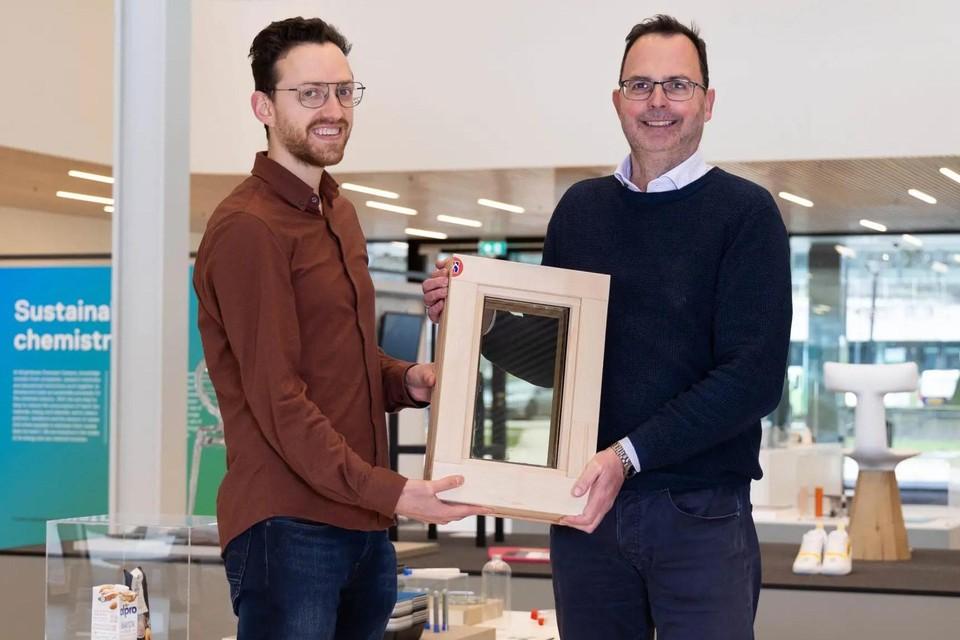
Collaboration Yparex and Brightlands Materials Center - © CUrgoal
A wafer-thin film, invisibly incorporated into window glass, that blocks heat in summer and lets it through in winter. And saves hundreds of euros in energy costs per year. That, in a nutshell, is the result of an intensive collaboration between Yparex and Brightlands Materials Center (BMC) a joint innovation center of TNO and the province of Limburg, both located on the Brightlands Chemelot Campus in Geleen.
The film's crucial ingredient is a special pigment developed by Brightlands Materials Center on campus. "This functional pigment can switch between holding back and letting through heat at a preset temperature," explains BMC's Ryan van Zandvoort. "A property that is useful in laminated safety glass to better regulate the indoor climate of buildings. A significant contribution to climate-neutral living. We started looking for a party that could help us with this and ended up with Yparex, here on the same campus."
Pigment and plastic
.Yparex was immediately interested. "Of course," says Wouter van den Berg, commercial director. "We have a lot of experience in developing plastic films for various applications, including in solar panels. This pigment proved eminently suitable for mixing with a special type of plastic and turning it into a film. The final recipe did require some time, but we managed to manufacture a film that can be effortlessly added to laminate glass."
BMC developed the recipe and produced the functional films to test the properties. "With excellent results," says Ryan van Zandvoort. "Heat is blocked when a certain temperature is reached without loss of transparency. By varying the pigment composition, we can determine at what temperature that happens. That makes the film suitable for many different climates. It saves air conditioning in summer and heating in winter."
Energy savings
.The foil provides energy savings of about 20 euros per square meter of glass, according to the latest calculations, with current Dutch energy tariffs. "More than interesting therefore for the international building sector," adds Wouter van den Berg. "The great thing is that the film is easy to process and requires no steering or energy. User-friendly, in other words. The process is automatic and there is no wear and tear. We expect a lot of interest from large window manufacturers, for example. In principle, the film is ready for large-scale production and the market."
Source: The Limburger